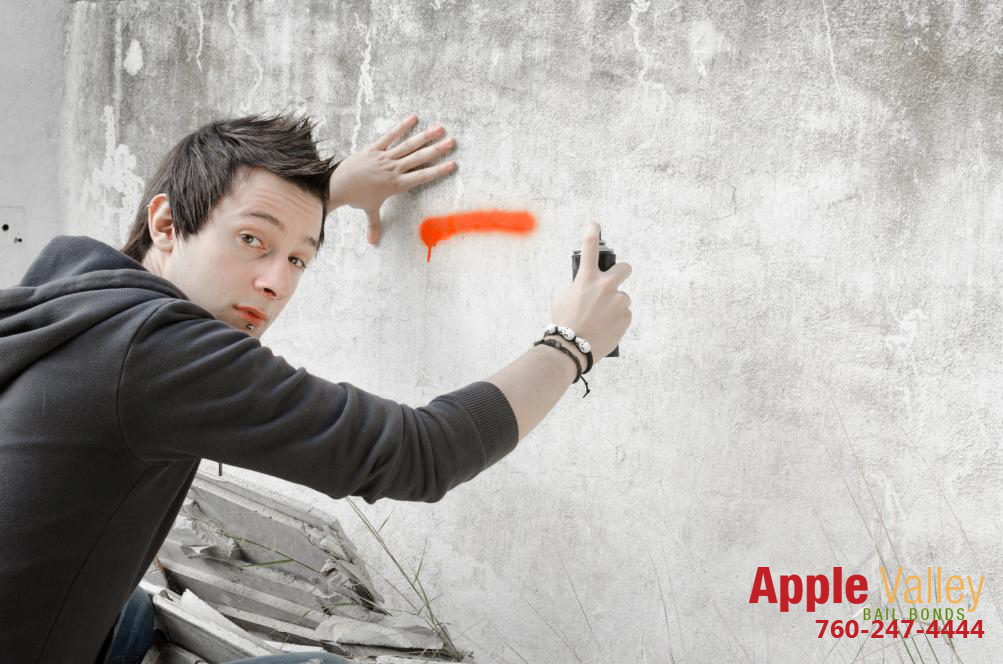F or those unaware, a peeping tom is typically a man who spies on a woman while she’s changing. What was once a fairly common scene in movies has since died off as people admitted just how creepy the act of peeping is. The act is so despised that there are laws against peeping and […]
Tag Archives: apple valley bail bonds
Tagging and graffiti are two things that most people have seen, especially if they live in an urban area. Pretty much every large city in the country is littered with graffiti and other signs of tagging. A lot of times, these random markings can make signs unreadable, and change the look of the city for […]
Did you know that in California, women may not drive in a housecoat, or that no vehicle without a driver may exceed 60 miles per hour? We are not pulling your leg. These are real laws that are still written in California’s law books. They are not the only weird, odd, peculiar laws this state […]
In order to have fun and celebrate the 4th of July, you need to understand the proper safety rules. Drinking responsibly is something you practice and preach day in and day out. However, fireworks safety is something you do not see or use on a regular basis. If you do not really know the safety […]
In California, you can be charged with a hit and run, even if the accident was not your fault. If you are involved in an accident, you are required to give your contact information to the other driver before you leave, regardless if the accident was your fault or not. You can be charged with […]
In California, we love our pets as much as we love our brothers and sisters, which is why we have a Good Samaritan law that makes it legal to smash a car window to save an animal. The law has been in effect for almost a year, and it is designed to protect the individual […]
Leaving Your Child Unattended in the Car Do you choose convenience over safety and responsibility, or the other way around? For example, when you have your 4 year old child with you and you need to run into the store to pick up toilet paper on the way home, would you consider leaving your child […]
“It is not every day that you break a law,” you think to yourself. Little do you know that statement might actually be false. It could very well be that you are breaking some law everyday and you do not even realize it. It is not just you, a lot of people are breaking a […]
With the passing of prop 64, the topic of drug possession has become more prominent in recent months. While it is now legal for people 21 and older to possess some small amount of marijuana, this is the only drug that has been legalized. Even still, there are rules and restrictions to its use. Even […]
At the start of this year, the state of New Jersey eliminated its bail system in favor of a system where judges determine whether or not it is safe to release the defendant. The idea of this new system was to be fairer to people who would not be able to generate the funds needed […]
Everyone knows that driving while drunk is a bad idea. While drunk you have poor motor control, and lack a sense of adequate risk assessment. Basically, you can’t control your actions well, and you do things that you wouldn’t normally do while sober. It is easy to see why people should not be driving in […]
If you have never been pulled over for a DUI before, you may wonder how you should answer when asked if you have been drinking after having a drink or 2. As a United States citizen, you have the right against self-incrimination. This means that you do not have to answer that question. However, that […]












